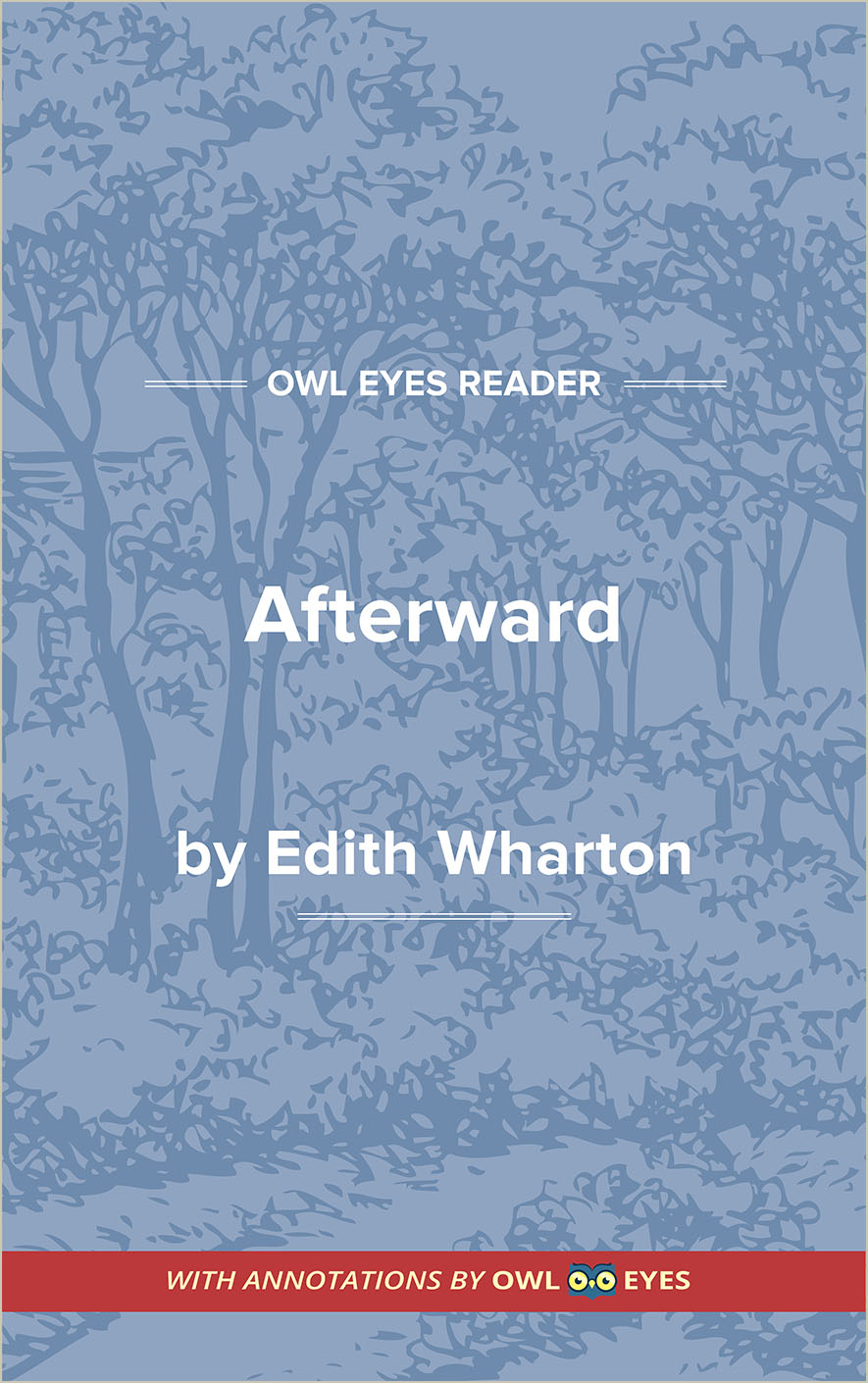Analysis Pages
Themes in Afterward
The Inevitable Greed of Business: Using the traditional tale of the Gothic ghost story, Wharton is able to provide commentary on financial greed and income inequality inherent in the pursuit of wealth above all other goals. Such commentary is most notably found in Mary’s conversation with Parvis, in which Wharton paints a picture of businessmen who refuse to admit moral culpability, their emotion and empathy long squandered by a desire for wealth.
Flawed Role of Women as Support: As Mary notes in the second part of the story, she is kept separate from her husband’s monetary affairs—due to her own volition, general apathy, and conviction that a woman should support her husband in his work affairs. Throughout “Afterward,” Mary takes care of the domestic sphere, figuring out architectural changes and ways to spend money. Though she participates in spending money, she does not really know the means with which it was acquired, which raises the question, “Is she complicit in any crimes committed by her husband?” “Afterward” seems to suggest that women’s roles ought not to be confined to support but also include investigation and inquisitiveness.
Commodification of Gothic Tradition: Because of the Gothic ghost stories they have read, both Ned and Mary dream of a home in Europe rather than in boring Midwestern America. Mary in particular believes in the “rules” of the books she’s read and searches for a manor with an accompanying ghost because she longs to recreate the fictional Europe of her imagination. In this way, the Gothic tradition is seen as something to “own” by these newly rich Americans, viewed as something to possess rather than respect.
Themes Examples in Afterward:
I
🔒"Mary was too well-versed in the code of the spectral world not to know that one could not talk about the ghosts one saw: to do so was almost as great a breach of good-breeding as to name a lady in a club...." See in text (I)
"two romantic Americans perversely in search of the economic drawbacks which were associated, in their tradition, with unusual architectural felicities...." See in text (I)
II
🔒"Now, for the first time, it startled her a little to find how little she knew of the material foundation on which her happiness was built...." See in text (II)
"Besides, she had felt from the first that, in a community where the amenities of living could be obtained only at the cost of efforts as arduous as her husband’s professional labors, such brief leisure as they could command should be used as an escape from immediate preoccupations, a flight to the life they always dreamed of living...." See in text (II)
"It’s all rather technical and complicated. I thought that kind of thing bored you.”..." See in text (II)
"I can’t understand more than half.”..." See in text (II)
"“is there any legend, any tradition, as to that?”..." See in text (II)
III
🔒"If she had indeed been careless of her husband’s affairs, it was, her new state seemed to prove, because her faith in him instinctively justified such carelessness; and his right to her faith had overwhelmingly affirmed itself in the very face of menace and suspicion. ..." See in text (III)
IV
🔒" like the victim of some poison which leaves the brain clear, but holds the body motionless, she saw herself domesticated with the Horror, accepting its perpetual presence as one of the fixed conditions of life...." See in text (IV)
V
🔒"“I don’t say it wasn’t straight, and yet I don’t say it was straight. It was business.”..." See in text (V)
"Her husband had made his money in that brilliant speculation at the cost of “getting ahead” of some one less alert to seize the chance; the victim of his ingenuity was young Robert Elwell, who had “put him on” to the Blue Star scheme...." See in text (V)

